Every #1 Hit From 1974, Ranked Worst to Best
A mixed bag of novelties, pop filler, and career-defining gems.
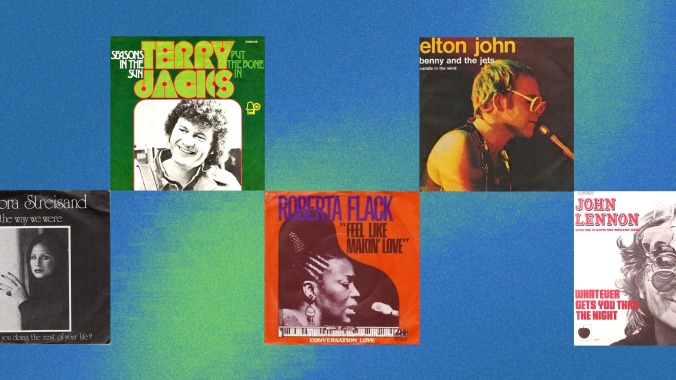
For the rest of the year, I’m ranking every Billboard #1 hit from 1964, 1974, 1984, 1994, 2004 and 2014 from worst to best in each respective year. I did this in 2023, which you can read the final entry of here (and access the previous ones), and I figured I’d fire the series back up as we careen towards 2025.
Last week, I ranked the 1964 crop and today we’re looking at 1974, the densest list of the series, spanning a total of 36 #1 hits across 52 weeks. I think 23 or 24 of these songs are good, but there are far too many clunkers in this bunch. Luckily, the upper half of the list is rock solid. 1974 offered up a great mix of novelty songs, soft rock filler, and career-defining gems from some of the greatest musicians of their respective eras. Without further ado, here is every #1 hit from 1974, ranked from worst to best.
36. Eric Clapton: “I Shot the Sheriff”
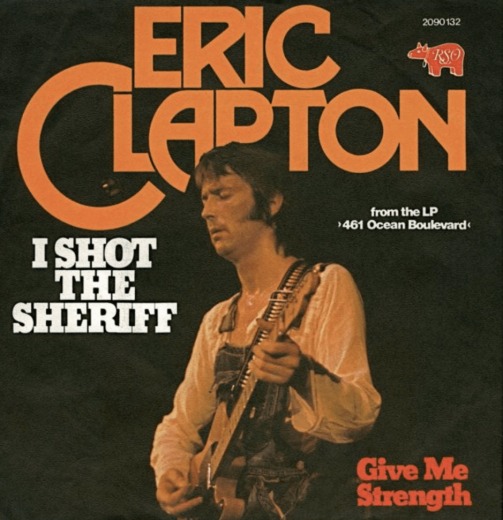 Eric Clapton taking a song about anti-cop justice (or, supposedly, birth control) by the beloved Bob Marley and turning it into a white-washed soft rock hit? Yeah, that checks out. It was Clapton’s first solo #1 hit on the Hot 100, a feat he’d never reach again in his career (“Tears in Heaven” peaked at #2 in 1992). I’d have preferred to leave this song off the list entirely, but I must remain faithful to the prompt. Fuck you, Eric Clapton.
Eric Clapton taking a song about anti-cop justice (or, supposedly, birth control) by the beloved Bob Marley and turning it into a white-washed soft rock hit? Yeah, that checks out. It was Clapton’s first solo #1 hit on the Hot 100, a feat he’d never reach again in his career (“Tears in Heaven” peaked at #2 in 1992). I’d have preferred to leave this song off the list entirely, but I must remain faithful to the prompt. Fuck you, Eric Clapton.
35. Ray Stevens: “The Streak”
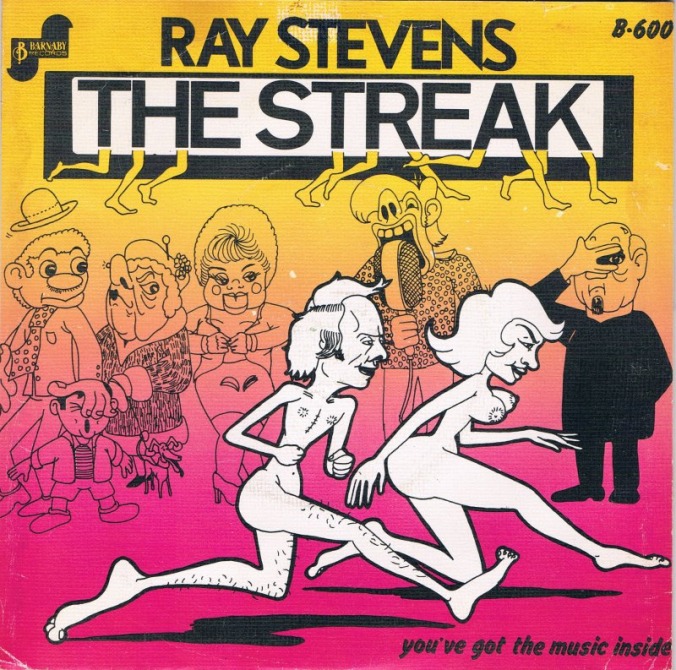 The only thing keeping this monstrosity out of the bottom spot is the fact that Eric Clapton made music in 1974. Otherwise, Ray Stevens’s “The Streak” is an assault on my ears—a novelty song so unforgiving that I can’t even begin to understand how it topped the charts not just for one week, but for three! Thank goodness for Paul McCartney & Wings, whose “Band on the Run” unseated this blemish on society. I’d rather never listen to music again than have to hear even a second of “The Streak.”
The only thing keeping this monstrosity out of the bottom spot is the fact that Eric Clapton made music in 1974. Otherwise, Ray Stevens’s “The Streak” is an assault on my ears—a novelty song so unforgiving that I can’t even begin to understand how it topped the charts not just for one week, but for three! Thank goodness for Paul McCartney & Wings, whose “Band on the Run” unseated this blemish on society. I’d rather never listen to music again than have to hear even a second of “The Streak.”
34. Paul Anka & Odia Coates: “(You’re) Having My Baby”
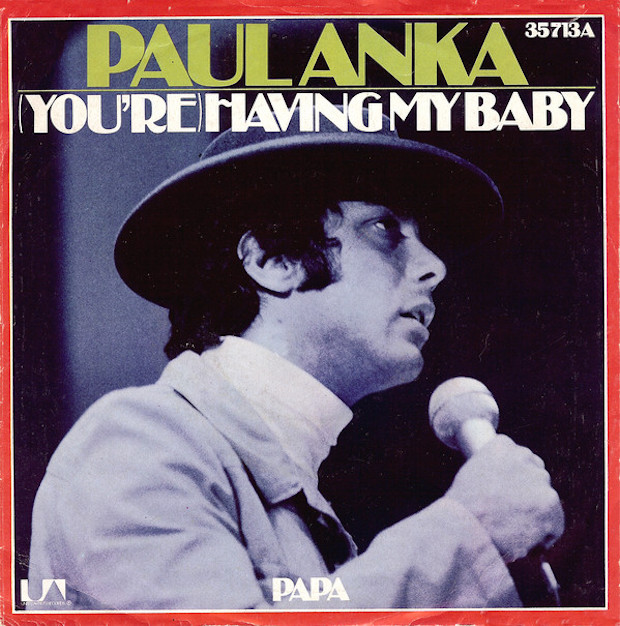 A song so distasteful and exhausting, “(You’re) Having My Baby” was first introduced to me through Glee but I wish I’d never heard even a second of it. It’s one of the worst commercial pop songs ever made and it should be shot at the sun immediately. How was Paul Anka ever famous? His song “Diana” also sucked. He can’t sing, his lyrics are enraging, and I’ve gotta listen to him do a half-hearted Elvis impression? I’ll pass.
A song so distasteful and exhausting, “(You’re) Having My Baby” was first introduced to me through Glee but I wish I’d never heard even a second of it. It’s one of the worst commercial pop songs ever made and it should be shot at the sun immediately. How was Paul Anka ever famous? His song “Diana” also sucked. He can’t sing, his lyrics are enraging, and I’ve gotta listen to him do a half-hearted Elvis impression? I’ll pass.
33. Cher: “Dark Lady”
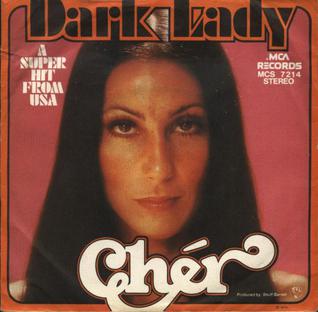 Cher’s third #1 hit in the United States, “Dark Lady,” has aged horribly over the years. Written about a gypsy fortune teller whom she kills, Cher’s knack for Broadway theatricality served her well 50 years ago but does her no favors in retrospect. “Dark Lady,” written by Ventures keyboardist Johnny Durrill, is dull, gross and just not all that fun to listen to. It achieves no separation, sonically, from other pop tracks of the era, and it’s just a disappointing effort from one of the most beloved vocalists of the last half-century. Cher’s previous two hit songs were just as awful (she calls herself a Gypsy in “Gypsys, Tramps and Thieves” and claims to be half-Cherokee in “Half-Breed,” despite neither of those things being true), too. She’s an icon, there’s no doubt about it, but “Dark Lady” needs no supporters.
Cher’s third #1 hit in the United States, “Dark Lady,” has aged horribly over the years. Written about a gypsy fortune teller whom she kills, Cher’s knack for Broadway theatricality served her well 50 years ago but does her no favors in retrospect. “Dark Lady,” written by Ventures keyboardist Johnny Durrill, is dull, gross and just not all that fun to listen to. It achieves no separation, sonically, from other pop tracks of the era, and it’s just a disappointing effort from one of the most beloved vocalists of the last half-century. Cher’s previous two hit songs were just as awful (she calls herself a Gypsy in “Gypsys, Tramps and Thieves” and claims to be half-Cherokee in “Half-Breed,” despite neither of those things being true), too. She’s an icon, there’s no doubt about it, but “Dark Lady” needs no supporters.
32. MFSB & The Three Degrees: “TSOP (The Sound of Philadelphia)”
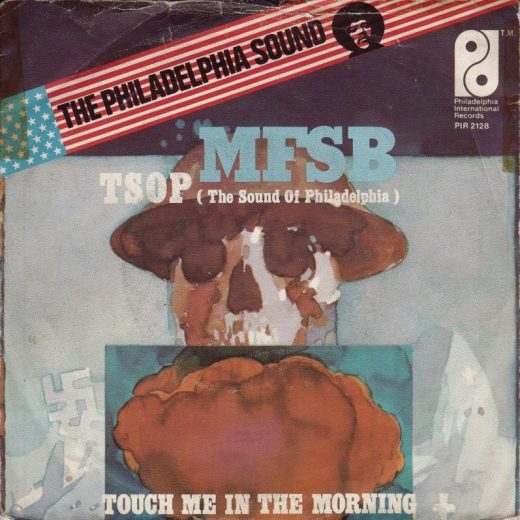 I love Soul Train, but I do not love its theme song, “TSOP (The Sound of Philadelphia).” It’s a fine Philadelphia soul/disco song, but it’s an instrumental that doesn’t even include the name “Soul Train” because the show’s creator/host, Don Cornelius, wouldn’t let MFSB & The Three Degrees use it. Oh well. Dexys Midnight Runners covered the song in the ‘80s and it was the B-side to “Jackie Wilson Said.”
I love Soul Train, but I do not love its theme song, “TSOP (The Sound of Philadelphia).” It’s a fine Philadelphia soul/disco song, but it’s an instrumental that doesn’t even include the name “Soul Train” because the show’s creator/host, Don Cornelius, wouldn’t let MFSB & The Three Degrees use it. Oh well. Dexys Midnight Runners covered the song in the ‘80s and it was the B-side to “Jackie Wilson Said.”
31. Bo Donaldson & the Heywoods: “Billy Don’t Be a Hero”
 A war song that doesn’t actually specify which war it’s talking about (most listeners consider it to be about Vietnam, though the song’s drumming conjures cavalry sounds from Civil War times), “Billy Don’t Be a Hero” is forgivable because it sounds fine enough. There are quite a few songs on this list that I return to, but this isn’t one of them. Bo Donaldson & the Heywoods formed in my home state of Ohio, but I can’t put my chips behind this one. It’s just like any other tragedy caught on tape—a story of a woman in distress about her husband-to-be enlisting in the Army, only for him to get killed in action. After getting to rank a song like “Leader of the Pack” last week, “Billy Don’t Be a Hero” is underwhelming. I much prefer Bo Danldson & the Heywoods’ other Top 20 hit song, “Who Do You Think You Are.”
A war song that doesn’t actually specify which war it’s talking about (most listeners consider it to be about Vietnam, though the song’s drumming conjures cavalry sounds from Civil War times), “Billy Don’t Be a Hero” is forgivable because it sounds fine enough. There are quite a few songs on this list that I return to, but this isn’t one of them. Bo Donaldson & the Heywoods formed in my home state of Ohio, but I can’t put my chips behind this one. It’s just like any other tragedy caught on tape—a story of a woman in distress about her husband-to-be enlisting in the Army, only for him to get killed in action. After getting to rank a song like “Leader of the Pack” last week, “Billy Don’t Be a Hero” is underwhelming. I much prefer Bo Danldson & the Heywoods’ other Top 20 hit song, “Who Do You Think You Are.”
30. Helen Reddy: “Angie Baby”
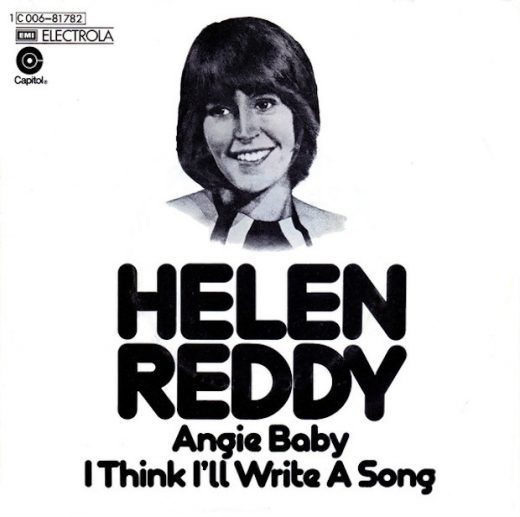 “Angie Baby” was the last #1 hit of 1974 but wouldn’t carry over into 1975, as Elton John would unseat Helen Reddy’s third chart-topping single on January 4th with his cover of “Lucy in the Sky with Diamonds.” Reddy is the best example of an inoffensive singer whose adult-contemporary stylings existed in the correct era. She was a Hot 100 lock 50 years ago, taking tracks like “Delta Dawn” and “Angie Baby” and turning them into high-selling success stories. The redeeming factor for a milquetoast, easy-listening flop like “Angie Baby” is that it’s been sampled or covered by dozens of artists over the years.
“Angie Baby” was the last #1 hit of 1974 but wouldn’t carry over into 1975, as Elton John would unseat Helen Reddy’s third chart-topping single on January 4th with his cover of “Lucy in the Sky with Diamonds.” Reddy is the best example of an inoffensive singer whose adult-contemporary stylings existed in the correct era. She was a Hot 100 lock 50 years ago, taking tracks like “Delta Dawn” and “Angie Baby” and turning them into high-selling success stories. The redeeming factor for a milquetoast, easy-listening flop like “Angie Baby” is that it’s been sampled or covered by dozens of artists over the years.
29. Billy Swan: “I Can Help”
 If a few novelty songs could top the charts during one of the most plentiful eras of rock ‘n’ roll, then so could a rockabilly-inspired, country crossover by Billy Swan. “I Can Help” is an earworm that somehow cut through all the funk, disco and soft-rock overtaking the culture in 1974. I’m not saying that “I Can Help” should be a staple on anyone’s playlists, but the song so clearly capitalized on that era of ‘50s and ‘60s nostalgia that was swarming America at the time. Chasing an obvious moment—you can’t knock the hustle. American Graffiti helped the Silent Generation remember how good their music was at the tail-end of the Nixon years, but most of it sounded like a tired rehash of the same-old tunes and tropes; “I Can Help” got lucky, and few people remember it.
If a few novelty songs could top the charts during one of the most plentiful eras of rock ‘n’ roll, then so could a rockabilly-inspired, country crossover by Billy Swan. “I Can Help” is an earworm that somehow cut through all the funk, disco and soft-rock overtaking the culture in 1974. I’m not saying that “I Can Help” should be a staple on anyone’s playlists, but the song so clearly capitalized on that era of ‘50s and ‘60s nostalgia that was swarming America at the time. Chasing an obvious moment—you can’t knock the hustle. American Graffiti helped the Silent Generation remember how good their music was at the tail-end of the Nixon years, but most of it sounded like a tired rehash of the same-old tunes and tropes; “I Can Help” got lucky, and few people remember it.
28. Paper Lace: “The Night Chicago Died”
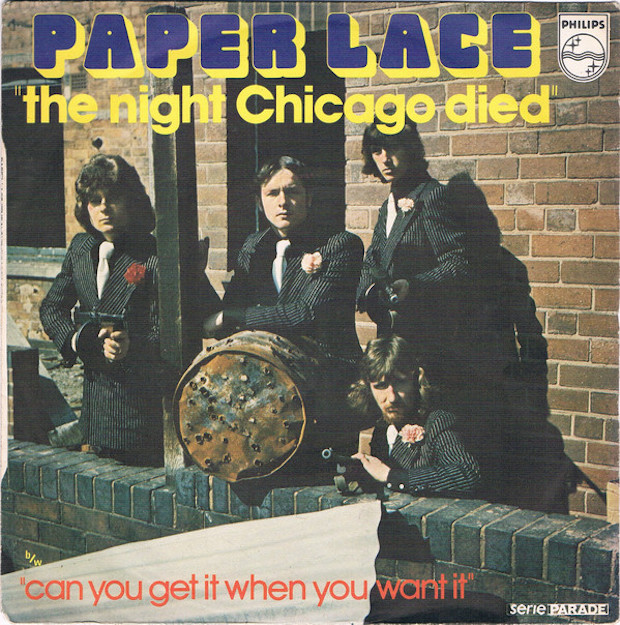 One of the few songs on this list that leans well into the rock ‘n’ roll of it all, “The Night Chicago Died” is one of those hits that exists only in the context of its brief reign on the Hot 100. It’s a tune about the Valentine’s Day Massacre and Al Capone’s gangsters. I mean, “The Night Chicago Died” is basically a novelty song but a good-sounding one, so that counts for something, I suppose. Chicago mayor Richard Daley hated the song, and one of his staffers allegedly said that Paper Lace should “jump in the Chicago River, placing your heads under water three times and surfacing twice.” Yeesh.
One of the few songs on this list that leans well into the rock ‘n’ roll of it all, “The Night Chicago Died” is one of those hits that exists only in the context of its brief reign on the Hot 100. It’s a tune about the Valentine’s Day Massacre and Al Capone’s gangsters. I mean, “The Night Chicago Died” is basically a novelty song but a good-sounding one, so that counts for something, I suppose. Chicago mayor Richard Daley hated the song, and one of his staffers allegedly said that Paper Lace should “jump in the Chicago River, placing your heads under water three times and surfacing twice.” Yeesh.
27. Ringo Starr: “You’re Sixteen”
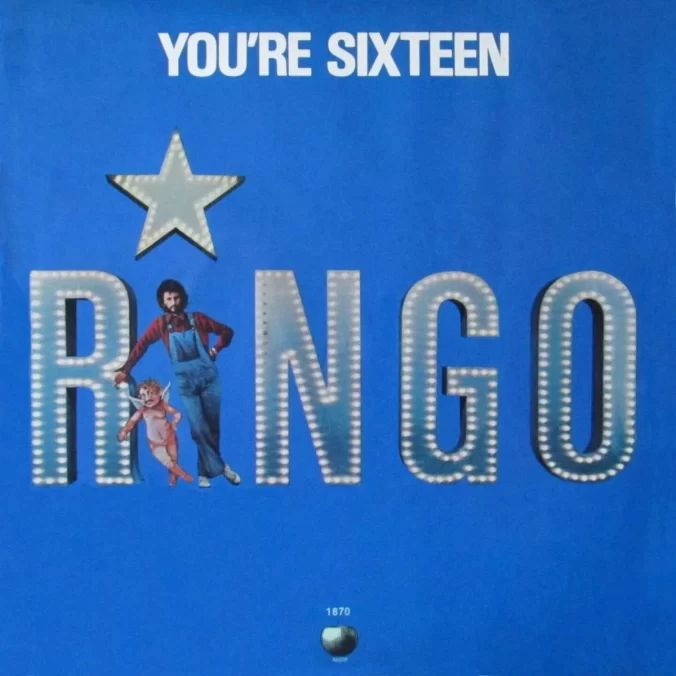 Ringo Starr’s cover of the Sherman Brothers’ “You’re Sixteen” is good but too morally flawed to remain significant in 2024. Johnny Burnette made the track famous first, as it cracked the Top 10 in 1960, but Ringo brought it back into the mainstream—not even a year after Burnette’s original recording wound up in the American Graffiti soundtrack. This performance also marked the first post-Beatles reunion on tape between Ringo and Paul McCartney—as there is a fun solo that sounds like a kazoo, but it’s actually just McCartney singing (though he is credited as playing the kazoo on the song). Nicky Hopkins plays a sweet piano lick, but not even that can save “You’re Sixteen” from being outdated. Grown men singing about having sex with teenagers was on trend in the late ‘50s and early ‘60s, but how anyone let this be a hit song twice is beyond me. There are better songs on Ringo, anyways, including the very good “Photograph.”
Ringo Starr’s cover of the Sherman Brothers’ “You’re Sixteen” is good but too morally flawed to remain significant in 2024. Johnny Burnette made the track famous first, as it cracked the Top 10 in 1960, but Ringo brought it back into the mainstream—not even a year after Burnette’s original recording wound up in the American Graffiti soundtrack. This performance also marked the first post-Beatles reunion on tape between Ringo and Paul McCartney—as there is a fun solo that sounds like a kazoo, but it’s actually just McCartney singing (though he is credited as playing the kazoo on the song). Nicky Hopkins plays a sweet piano lick, but not even that can save “You’re Sixteen” from being outdated. Grown men singing about having sex with teenagers was on trend in the late ‘50s and early ‘60s, but how anyone let this be a hit song twice is beyond me. There are better songs on Ringo, anyways, including the very good “Photograph.”
26. Billy Preston: “Nothing From Nothing”
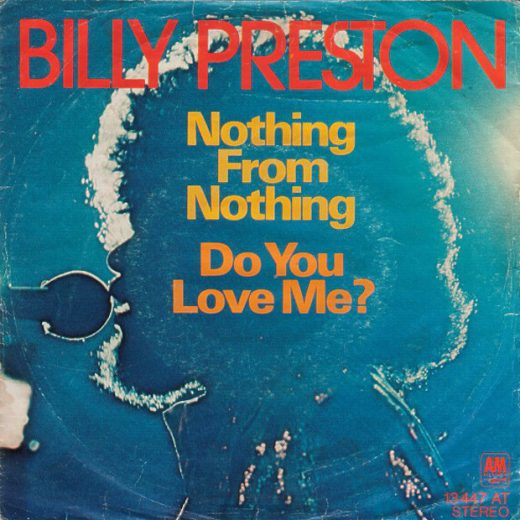 “Nothing From Nothing” is a special song because not only was it the first ever musical performance on Saturday Night Live, but it was featured in James Baldwin’s final novel, Just Above My Head. Otherwise, it was Billy Preston’s second #1 hit, following his 1973 chart-topper “Will It Go Round in Circles.” It’s hard to really emphasize how hit-or-miss he was in his prime, as his work as a sideman with the Rolling Stones, Ringo Starr and Eric Clapton and, briefly, the Beatles and the Band, sometimes overshadowed his solo talents. That became especially true while he worked as a session player for Luther Vandross and Whitney Houston. “Nothing From Nothing” is an inoffensive, sweet-sounding soul-pop tune with some funky horns to boot—not his greatest effort, but a song I wouldn’t turn off if it came on shuffle.
“Nothing From Nothing” is a special song because not only was it the first ever musical performance on Saturday Night Live, but it was featured in James Baldwin’s final novel, Just Above My Head. Otherwise, it was Billy Preston’s second #1 hit, following his 1973 chart-topper “Will It Go Round in Circles.” It’s hard to really emphasize how hit-or-miss he was in his prime, as his work as a sideman with the Rolling Stones, Ringo Starr and Eric Clapton and, briefly, the Beatles and the Band, sometimes overshadowed his solo talents. That became especially true while he worked as a session player for Luther Vandross and Whitney Houston. “Nothing From Nothing” is an inoffensive, sweet-sounding soul-pop tune with some funky horns to boot—not his greatest effort, but a song I wouldn’t turn off if it came on shuffle.
25. Carl Douglas: “Kung Fu Fighting”
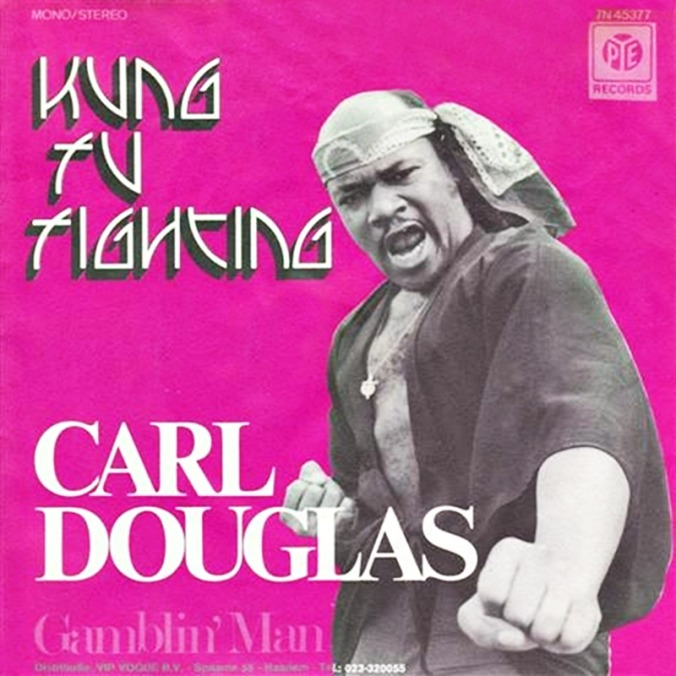 Would you believe it if I told you that Carl Douglas’s “Kung Fu Fighting” sold more than 11 million units across the globe? It’s one of the best-selling singles of all time, remaining in company with songs like “I Want to Hold Your Hand,” “Hound Dog” and “…Baby One More Time.” “Kung Fu Fighting” is a collage of different cultures, as it features a Jamaican singer performing about Chinese martial arts on a song produced by the British-Indian musician Biddu. It came out at the perfect time, as chopsocky films were all the rage around the world—thanks to the success of Five Fingers of Death. It’s one of the most well-known one-hit wonders of all time, even if its use of the Oriental riff is outdated and dull in 2024.
Would you believe it if I told you that Carl Douglas’s “Kung Fu Fighting” sold more than 11 million units across the globe? It’s one of the best-selling singles of all time, remaining in company with songs like “I Want to Hold Your Hand,” “Hound Dog” and “…Baby One More Time.” “Kung Fu Fighting” is a collage of different cultures, as it features a Jamaican singer performing about Chinese martial arts on a song produced by the British-Indian musician Biddu. It came out at the perfect time, as chopsocky films were all the rage around the world—thanks to the success of Five Fingers of Death. It’s one of the most well-known one-hit wonders of all time, even if its use of the Oriental riff is outdated and dull in 2024.
24. Love Unlimited Orchestra: “Love’s Theme”
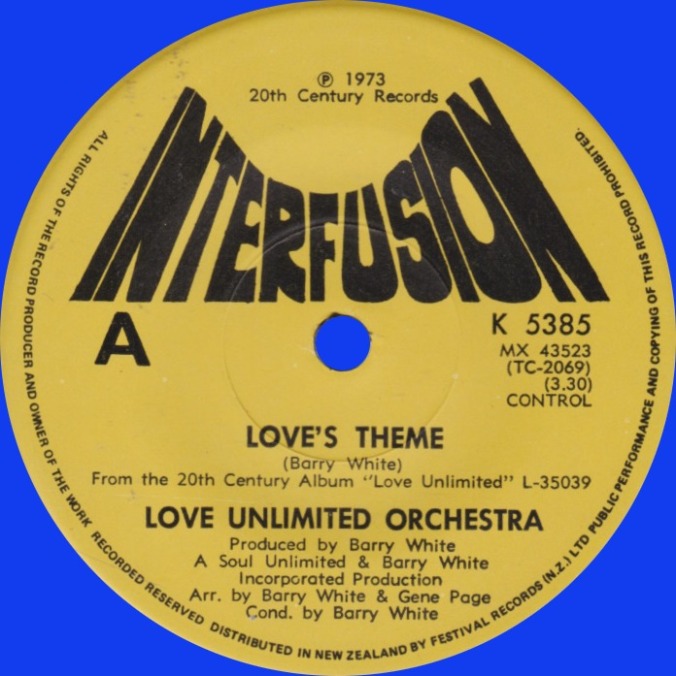 Normally, an instrumental track wouldn’t move the needle for me all that much. It’s hard to really rank them in the same conversation as other pop hits for obvious reasons, though that doesn’t negate their quality at all—apples and oranges, frankly. But “Love’s Theme,” one of the only orchestral singles to ever reach #1 on the Hot 100, is a special example of Philadelphia soul and a true marker of the shape of disco to come. Producer, composer and vocalist Barry White wrote the track almost 10 years before it took over the charts in February 1974, but his Love Unlimited Orchestra’s performance of the piece comes alive through its massive string section, mod guitar and infectious, swinging rhythms.
Normally, an instrumental track wouldn’t move the needle for me all that much. It’s hard to really rank them in the same conversation as other pop hits for obvious reasons, though that doesn’t negate their quality at all—apples and oranges, frankly. But “Love’s Theme,” one of the only orchestral singles to ever reach #1 on the Hot 100, is a special example of Philadelphia soul and a true marker of the shape of disco to come. Producer, composer and vocalist Barry White wrote the track almost 10 years before it took over the charts in February 1974, but his Love Unlimited Orchestra’s performance of the piece comes alive through its massive string section, mod guitar and infectious, swinging rhythms.
23. Olivia Newton-John: “I Honestly Love You”
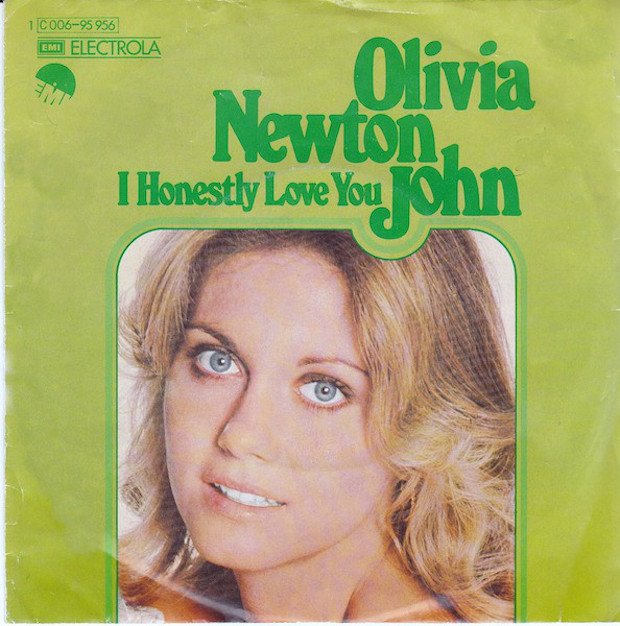 In 1975, Olivia Newton-John won two Grammy Awards for “I Honestly Love You”: Record of the Year and Best Pop Vocal Performance (Female). In the former category, she beat out Elton John and Roberta Flack, which feels like just another miss by the Recording Academy. I love Olivia, she’s one of the greatest vocalists ever, but let’s not sit here and act like “I Honestly Love You” is a better song than “Don’t Let the Sun Go Down on Me.” But that’s not Olivia’s fault; she doesn’t make industry decisions like that. What can be said about this track, however, is that she sings it so beautifully. Anytime it comes on the “70s on 7” Sirius XM station in my mom’s car, she freaks out. I get it; it’s hard not to feel your heartstrings getting tugged on when Olivia belts out, “If we both were born in another place in time, this moment might be ending with a kiss.”
In 1975, Olivia Newton-John won two Grammy Awards for “I Honestly Love You”: Record of the Year and Best Pop Vocal Performance (Female). In the former category, she beat out Elton John and Roberta Flack, which feels like just another miss by the Recording Academy. I love Olivia, she’s one of the greatest vocalists ever, but let’s not sit here and act like “I Honestly Love You” is a better song than “Don’t Let the Sun Go Down on Me.” But that’s not Olivia’s fault; she doesn’t make industry decisions like that. What can be said about this track, however, is that she sings it so beautifully. Anytime it comes on the “70s on 7” Sirius XM station in my mom’s car, she freaks out. I get it; it’s hard not to feel your heartstrings getting tugged on when Olivia belts out, “If we both were born in another place in time, this moment might be ending with a kiss.”
22. Gordon Lightfoot: “Sundown”
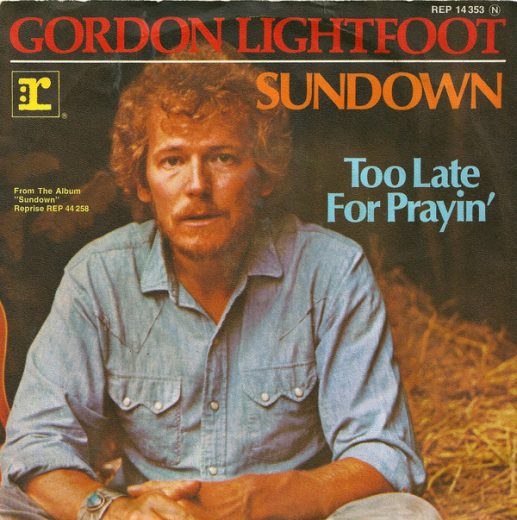 There’s a reason why Gordon Lightfoot was one of the greatest songwriters of his generation: He was a rough-around-the-edges counterpoint to some of his generation’s more commercially revered folk singers, like John Denver. He was more in the company of Jim Croce, but he never quite had the same stroke of wit or kitchen table charm. Lightfoot was a bright-lights-in-the-bar kind of songwriter, penning some of the prettiest music of all time. While I don’t think “Sundown” reaches the exact same heights as other folk hits from 1974 did, he made his mark in June of that year with a delightfully angry song about a disintegrating romance (supposedly with Cathy “Silverbag” Smith) four years after breaking big with his 1970 hit “If You Could Read My Mind,” a better song that didn’t quite peak the way “Sundown” did.
There’s a reason why Gordon Lightfoot was one of the greatest songwriters of his generation: He was a rough-around-the-edges counterpoint to some of his generation’s more commercially revered folk singers, like John Denver. He was more in the company of Jim Croce, but he never quite had the same stroke of wit or kitchen table charm. Lightfoot was a bright-lights-in-the-bar kind of songwriter, penning some of the prettiest music of all time. While I don’t think “Sundown” reaches the exact same heights as other folk hits from 1974 did, he made his mark in June of that year with a delightfully angry song about a disintegrating romance (supposedly with Cathy “Silverbag” Smith) four years after breaking big with his 1970 hit “If You Could Read My Mind,” a better song that didn’t quite peak the way “Sundown” did.
21. The Spinners & Dionne Warwick: “Then Came You”
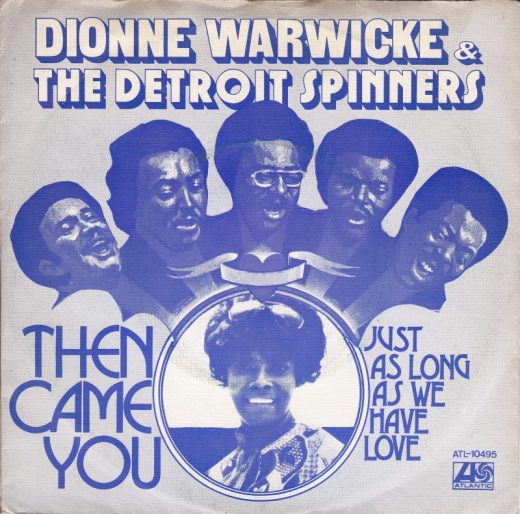 In a year like 1974, where the really bad music is strikingly obvious, “Then Came You” is a breath of fresh air. It’s definitely not the greatest song of the year, nor is it one of the five or six best Philadelphia soul tracks ever, but it’s a really sweet effort. I mean, who is gonna argue with a combination like Dionne Warwick and the Spinners? Warwick is an American treasure and one of the most deserving stars of her era, and her duet here with Bobby Smith is sublime. “Then Came You” is the kind of song that exemplifies how the commercialism of soul evolved into the commercialism of disco. It’s a nice hit that would get unseated by the even better “You Haven’t Done Nothin’.” Most of the songs on this list would have suffered the same fate.
In a year like 1974, where the really bad music is strikingly obvious, “Then Came You” is a breath of fresh air. It’s definitely not the greatest song of the year, nor is it one of the five or six best Philadelphia soul tracks ever, but it’s a really sweet effort. I mean, who is gonna argue with a combination like Dionne Warwick and the Spinners? Warwick is an American treasure and one of the most deserving stars of her era, and her duet here with Bobby Smith is sublime. “Then Came You” is the kind of song that exemplifies how the commercialism of soul evolved into the commercialism of disco. It’s a nice hit that would get unseated by the even better “You Haven’t Done Nothin’.” Most of the songs on this list would have suffered the same fate.
20. Al Wilson: “Show and Tell”
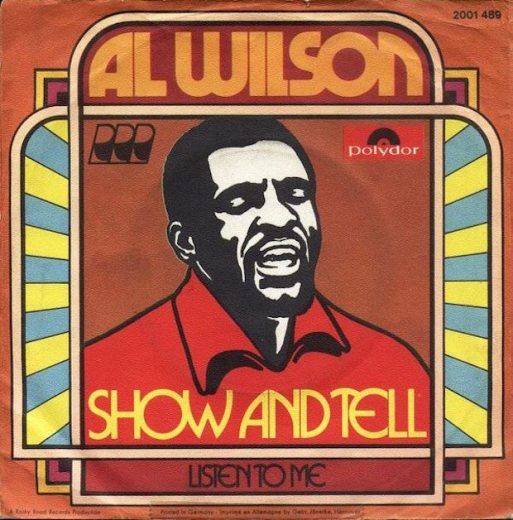 Recorded first by Johnny Mathis two years prior, “Show and Tell” is one of those soul-pop tracks that never ages—so it’s no surprise that in January 1974 it unseated “The Joker” in its 14th week on the Hot 100 chart. Wilson, who’d toured with Johnny Harris and the Statesmen and had a solo Top 40 hit in 1972 with “The Snake,” sold a million copies of “Show and Tell,” making it the biggest thing he ever did. Not too bad for a guy who was a janitor, office clerk and mail carrier all at the same time while he taught himself how to play drums.
Recorded first by Johnny Mathis two years prior, “Show and Tell” is one of those soul-pop tracks that never ages—so it’s no surprise that in January 1974 it unseated “The Joker” in its 14th week on the Hot 100 chart. Wilson, who’d toured with Johnny Harris and the Statesmen and had a solo Top 40 hit in 1972 with “The Snake,” sold a million copies of “Show and Tell,” making it the biggest thing he ever did. Not too bad for a guy who was a janitor, office clerk and mail carrier all at the same time while he taught himself how to play drums.
19. Bachman-Turner Overdrive: “You Ain’t Seen Nothing Yet”
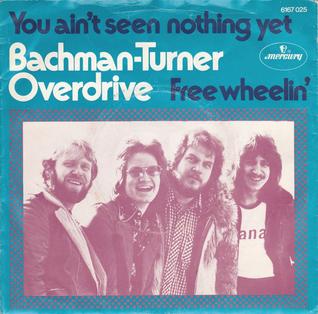 Personally, I like “Takin’ Care of Business” way more than I do “You Ain’t Seen Nothing Yet,” but I am a sucker for that “B-b-b-baby, you just ain’t seen na-na-nothin’ yet” stutter in the chorus. I especially love how it’s playing every time Kid Rock’s character shows up in Joe Dirt. Otherwise, it’s a track that helped Bachman-Turner Overdrive reach a true commercial breakout after “Takin’ Care of Business” peaked at #12 earlier in ‘74. The band would have other chart success later in the decade, but “You Ain’t Seen Nothing Yet” is their one bonafide smash, written by Randy Bachman to make fun of his brother Gary’s stutter. With and origin as absurd as that, it’s either completely on-brand that America turned it into a #1 song or a measure of sheer luck. Either way, BTO got a hard-earned victory after years of touring around North America—turning filled seats into chart positions. It helped Randy finally get away from the Guess Who-sized shadow that loomed over him after his departure from the band in 1970.
Personally, I like “Takin’ Care of Business” way more than I do “You Ain’t Seen Nothing Yet,” but I am a sucker for that “B-b-b-baby, you just ain’t seen na-na-nothin’ yet” stutter in the chorus. I especially love how it’s playing every time Kid Rock’s character shows up in Joe Dirt. Otherwise, it’s a track that helped Bachman-Turner Overdrive reach a true commercial breakout after “Takin’ Care of Business” peaked at #12 earlier in ‘74. The band would have other chart success later in the decade, but “You Ain’t Seen Nothing Yet” is their one bonafide smash, written by Randy Bachman to make fun of his brother Gary’s stutter. With and origin as absurd as that, it’s either completely on-brand that America turned it into a #1 song or a measure of sheer luck. Either way, BTO got a hard-earned victory after years of touring around North America—turning filled seats into chart positions. It helped Randy finally get away from the Guess Who-sized shadow that loomed over him after his departure from the band in 1970.
18. Grand Funk: “The Loco-Motion”
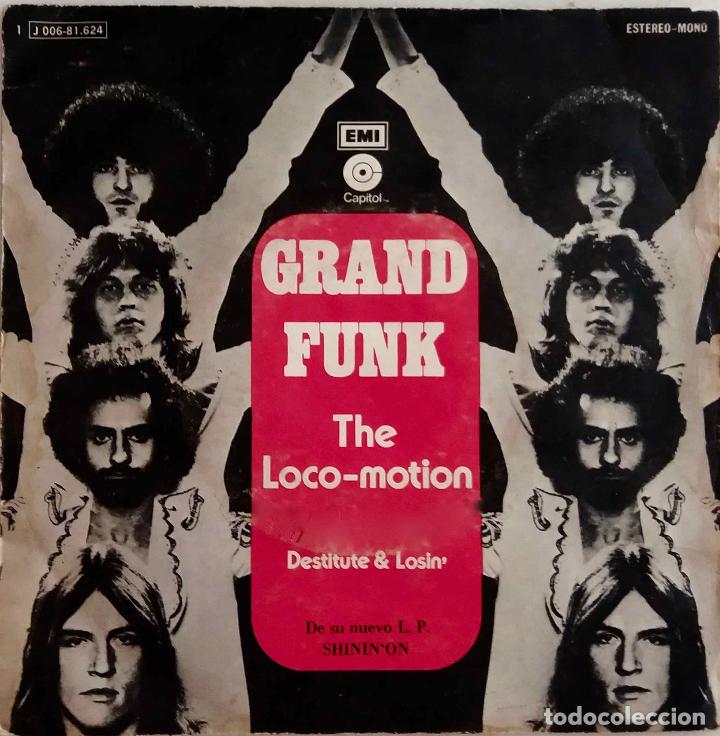 “The Loco-Motion” is the song on this list with the deepest lore—a fabled dance hit, written by Gerry Goffin and Carole King, that charted in three separate decades: In 1962, it was recorded by Little Eva and went #1; in 1974, Grand Funk Railroad (then called just “Grand Funk”) covered it in 1974 and it soared to the top spot; Kylie Minogue did a performance of it in 1988 and watched it rocket to #3. When the material works, it works—and there are very few songs in the history of recorded music that are as storied or as multi-generational as “The Loco-Motion.” Even Sylvie Vartan’s cover of it (titled “Le Loco-motion”) is really tremendous. So why is it in the bottom half of the list? Well, I think Grand Funk’s rendition is the worst of the bunch. It’s still good! Don’t get me wrong. But other artists have given it longer legs.
“The Loco-Motion” is the song on this list with the deepest lore—a fabled dance hit, written by Gerry Goffin and Carole King, that charted in three separate decades: In 1962, it was recorded by Little Eva and went #1; in 1974, Grand Funk Railroad (then called just “Grand Funk”) covered it in 1974 and it soared to the top spot; Kylie Minogue did a performance of it in 1988 and watched it rocket to #3. When the material works, it works—and there are very few songs in the history of recorded music that are as storied or as multi-generational as “The Loco-Motion.” Even Sylvie Vartan’s cover of it (titled “Le Loco-motion”) is really tremendous. So why is it in the bottom half of the list? Well, I think Grand Funk’s rendition is the worst of the bunch. It’s still good! Don’t get me wrong. But other artists have given it longer legs.
17. Roberta Flack: “Feel Like Makin’ Love”
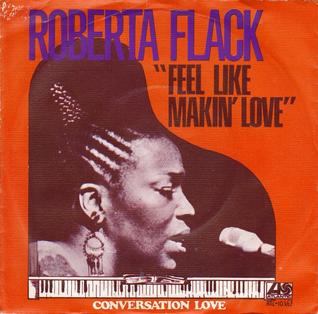 In 1973, Roberta Flack put out her greatest song, “Killing Me Softly with His Song,” and was rewarded for it with a Grammy for Record of the Year. Flash-forward to ‘74 and Flack returned to the top of the Hot 100 with “Feel Like Makin’ Love,” the title track from her fifth solo album. Eugene McDaniels wrote it, and Flack was simply one voice in a long line of progeny who covered it—including Gladys Knight, Roy Ayers, George Benson, Johnny Mathis and D’Angelo. But, as was the case in most of the music Flack performed, her rendition is simply the best of the bunch. Any time she sang into a microphone, the world glowed a little brighter. “Feel Like Makin’ Love” stirs in its own splendor; we’re all lucky we get to step into it.
In 1973, Roberta Flack put out her greatest song, “Killing Me Softly with His Song,” and was rewarded for it with a Grammy for Record of the Year. Flash-forward to ‘74 and Flack returned to the top of the Hot 100 with “Feel Like Makin’ Love,” the title track from her fifth solo album. Eugene McDaniels wrote it, and Flack was simply one voice in a long line of progeny who covered it—including Gladys Knight, Roy Ayers, George Benson, Johnny Mathis and D’Angelo. But, as was the case in most of the music Flack performed, her rendition is simply the best of the bunch. Any time she sang into a microphone, the world glowed a little brighter. “Feel Like Makin’ Love” stirs in its own splendor; we’re all lucky we get to step into it.
16. Steve Miller Band: “The Joker”
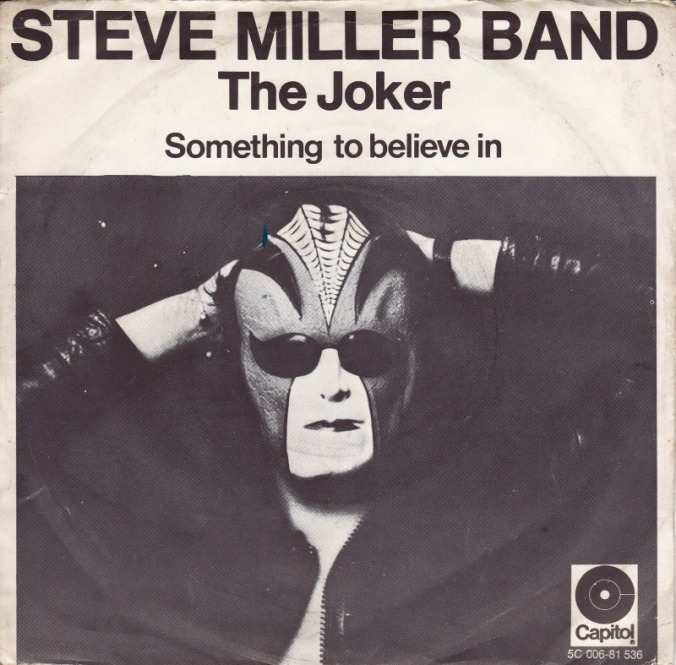 “The Joker” is a tremendous song, and it’s one of Steve Miller Band’s all-time best, no doubt. It would cause controversy 16 years after its release, however, when it went #1 on the UK Singles chart thanks to a Levi’s ad placement and kept Deee-Lite’s “Groove Is in the Heart” out of the top spot. Unforgivable? Certainly. But “The Joker” rocks, even if part of it is a rip-off (Miller borrowed lyrics from Ahmet Ertegun and Eddie Curtis’s “Lovey Dovey,” which charted in 1954 after the Clovers performed it). Fun fact: Steve Miller Band has two songs that use the word “pompatus” in them. Miller would score two more #1 hits down the road (“Rock’n Me” in 1976 and “Abracadabra” in 1982), but “The Joker” remains one of his signature tunes—and the “I really love your peaches, wanna shake your tree” couplet still rules.
“The Joker” is a tremendous song, and it’s one of Steve Miller Band’s all-time best, no doubt. It would cause controversy 16 years after its release, however, when it went #1 on the UK Singles chart thanks to a Levi’s ad placement and kept Deee-Lite’s “Groove Is in the Heart” out of the top spot. Unforgivable? Certainly. But “The Joker” rocks, even if part of it is a rip-off (Miller borrowed lyrics from Ahmet Ertegun and Eddie Curtis’s “Lovey Dovey,” which charted in 1954 after the Clovers performed it). Fun fact: Steve Miller Band has two songs that use the word “pompatus” in them. Miller would score two more #1 hits down the road (“Rock’n Me” in 1976 and “Abracadabra” in 1982), but “The Joker” remains one of his signature tunes—and the “I really love your peaches, wanna shake your tree” couplet still rules.
15. The Hues Corporation: “Rock the Boat”
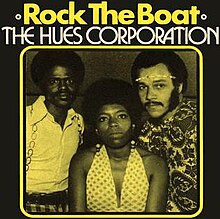 Not to be confused with Aaliyah’s “Rock the Boat,” or with other 1974 hits like “Rock Your Baby” and “Rock Me Gently,” the Hues Corporation turned in a soul novelty with “Rock the Boat” in May 1974 and, two months later, it unseated Gordon Lightfoot from the top spot on the Hot 100. I love this song so much; I wish I could have been on the ground at all the NYC clubs that turned this track into a firecracker. “Rock the Boat” is punchy and a flavorful oldie that may be out of fashion, but it’ll never go out of style.
Not to be confused with Aaliyah’s “Rock the Boat,” or with other 1974 hits like “Rock Your Baby” and “Rock Me Gently,” the Hues Corporation turned in a soul novelty with “Rock the Boat” in May 1974 and, two months later, it unseated Gordon Lightfoot from the top spot on the Hot 100. I love this song so much; I wish I could have been on the ground at all the NYC clubs that turned this track into a firecracker. “Rock the Boat” is punchy and a flavorful oldie that may be out of fashion, but it’ll never go out of style.
14. Blue Swede: “Hooked on a Feeling”
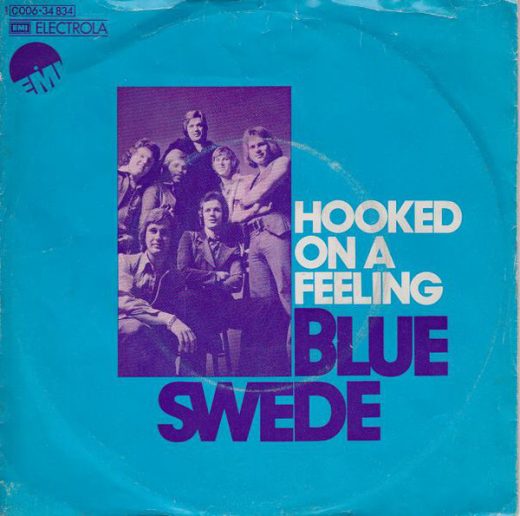 If you think “Hooked on a Feeling” is one of the worst songs of all time, then clearly you’ve never done a last-dance conga line to it at a wedding. In that case, I’ll let that God awful “oogah chugga” opening hook slide. The track was originally recorded in 1968 by B.J. Thomas, and it reached #5 on the Hot 100 the next year. But Blue Swede’s spectacular cover six years later is the one that lingers in the public consciousness, and I prefer it that way. I heard it for the first time when I watched Reservoir Dogs in high school and I’ve loved it ever since—no matter how corny it may be. It was introduced to a new generation through its appearance on the Guardians of the Galaxy soundtrack 10 years ago, and may Hinke Ekestubbe’s tenor saxophone and Tommy Berglund’s trumpet continue to ring for as long as it still lingers in our hearts.
If you think “Hooked on a Feeling” is one of the worst songs of all time, then clearly you’ve never done a last-dance conga line to it at a wedding. In that case, I’ll let that God awful “oogah chugga” opening hook slide. The track was originally recorded in 1968 by B.J. Thomas, and it reached #5 on the Hot 100 the next year. But Blue Swede’s spectacular cover six years later is the one that lingers in the public consciousness, and I prefer it that way. I heard it for the first time when I watched Reservoir Dogs in high school and I’ve loved it ever since—no matter how corny it may be. It was introduced to a new generation through its appearance on the Guardians of the Galaxy soundtrack 10 years ago, and may Hinke Ekestubbe’s tenor saxophone and Tommy Berglund’s trumpet continue to ring for as long as it still lingers in our hearts.
13. Harry Chapin: “Cat’s in the Cradle”
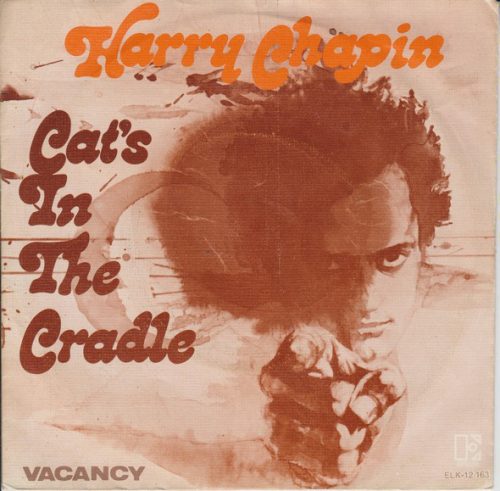 “Cat’s in the Cradle” is one of the most beloved songs of the 1970s, but it just doesn’t move me like it does others. And that’s okay! Maybe my own daddy issues cloud the goodness of Harry Chapin’s #1 hit; maybe I’ve played too much Grand Theft Auto V over the last 11 years and have heard “Cat’s in the Cradle” play over and over on the Los Santos Rock Radio. Nonetheless, “Cat’s in the Cradle” is a very good song—everything from here until the end are—and it’s one of those father-son stories that speaks passionately about generation gaps and the way family relationships change with time and perspective. Chapin was inspired by a poem his wife, Sandra Gaston, wrote about her and her first husband, repurposing it into lyrics about his relationship with his son Josh. “Frankly, this song scares me to death,” he once said. The older I get, the more I know just what he means.
“Cat’s in the Cradle” is one of the most beloved songs of the 1970s, but it just doesn’t move me like it does others. And that’s okay! Maybe my own daddy issues cloud the goodness of Harry Chapin’s #1 hit; maybe I’ve played too much Grand Theft Auto V over the last 11 years and have heard “Cat’s in the Cradle” play over and over on the Los Santos Rock Radio. Nonetheless, “Cat’s in the Cradle” is a very good song—everything from here until the end are—and it’s one of those father-son stories that speaks passionately about generation gaps and the way family relationships change with time and perspective. Chapin was inspired by a poem his wife, Sandra Gaston, wrote about her and her first husband, repurposing it into lyrics about his relationship with his son Josh. “Frankly, this song scares me to death,” he once said. The older I get, the more I know just what he means.
12. John Denver: “Sunshine on My Shoulders”
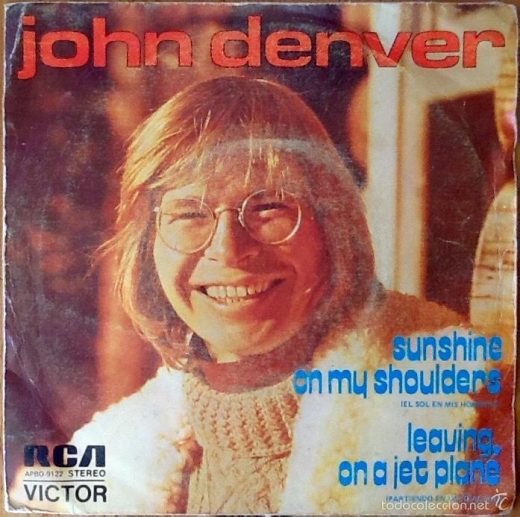 The only artist with two #1 hits in 1974, John Denver unseated Cher at the end of March with “Sunshine on My Shoulders,” one of the best soft rock/country crossovers of the decade. It first came out in 1971 on his album Poems, Prayers & Promises, but wasn’t a single until two years later, becoming the 10th chart-topper of the year. Denver’s voice was like that of an angel, and the way he can set even the gloomiest of songs aglow with just enough hope is something the world has never taken for granted over these last 50 years. “Sunshine on My Shoulders” works because a light cut through the grey slush of a Minnesota winter, penning “If I had a song I could sing for you, I’d a song to make you feel this way” and then letting us all hold onto it. The way Denver holds that final note while “Sunshine almost always” fades out—words can’t begin to describe the feeling it summons deep within me.
The only artist with two #1 hits in 1974, John Denver unseated Cher at the end of March with “Sunshine on My Shoulders,” one of the best soft rock/country crossovers of the decade. It first came out in 1971 on his album Poems, Prayers & Promises, but wasn’t a single until two years later, becoming the 10th chart-topper of the year. Denver’s voice was like that of an angel, and the way he can set even the gloomiest of songs aglow with just enough hope is something the world has never taken for granted over these last 50 years. “Sunshine on My Shoulders” works because a light cut through the grey slush of a Minnesota winter, penning “If I had a song I could sing for you, I’d a song to make you feel this way” and then letting us all hold onto it. The way Denver holds that final note while “Sunshine almost always” fades out—words can’t begin to describe the feeling it summons deep within me.
11. Barry White: “Can’t Get Enough of Your Love, Babe”
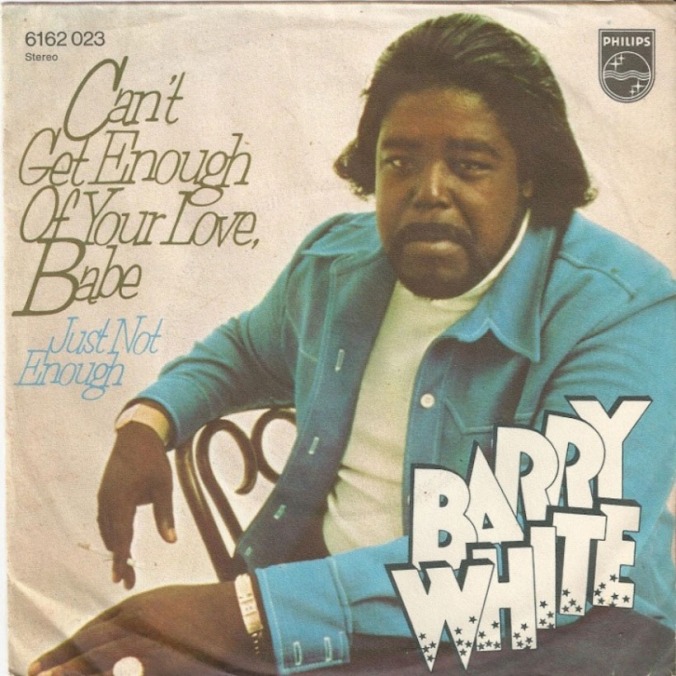 “I’ve heard people say that too much of anything is no good for you, baby. But I don’t know about that,” Barry White says at the beginning of “Can’t Get Enough of Your Love, Babe,” and I think he was onto something there. There’s no such thing as “too much” of a song like this, one of the most effortlessly sexy singles of all time—all thanks to White’s silky bass vocal. “Can’t Get Enough of Your Love, Babe” is the kind of performance that should’ve afforded disco a lifespan that’s still going. The song is a lullaby wrapped in velvet, with Gene Page’s arrangements working overtime to keep up with White’s conduction. It’s dingy, rich and unforgettable. It pales in the shadow of folks like Marvin Gaye and Curtis Mayfield, but “Can’t Get Enough of Your Love, Babe” exists in a league of its own.
“I’ve heard people say that too much of anything is no good for you, baby. But I don’t know about that,” Barry White says at the beginning of “Can’t Get Enough of Your Love, Babe,” and I think he was onto something there. There’s no such thing as “too much” of a song like this, one of the most effortlessly sexy singles of all time—all thanks to White’s silky bass vocal. “Can’t Get Enough of Your Love, Babe” is the kind of performance that should’ve afforded disco a lifespan that’s still going. The song is a lullaby wrapped in velvet, with Gene Page’s arrangements working overtime to keep up with White’s conduction. It’s dingy, rich and unforgettable. It pales in the shadow of folks like Marvin Gaye and Curtis Mayfield, but “Can’t Get Enough of Your Love, Babe” exists in a league of its own.
10. Terry Jacks: “Seasons in the Sun”
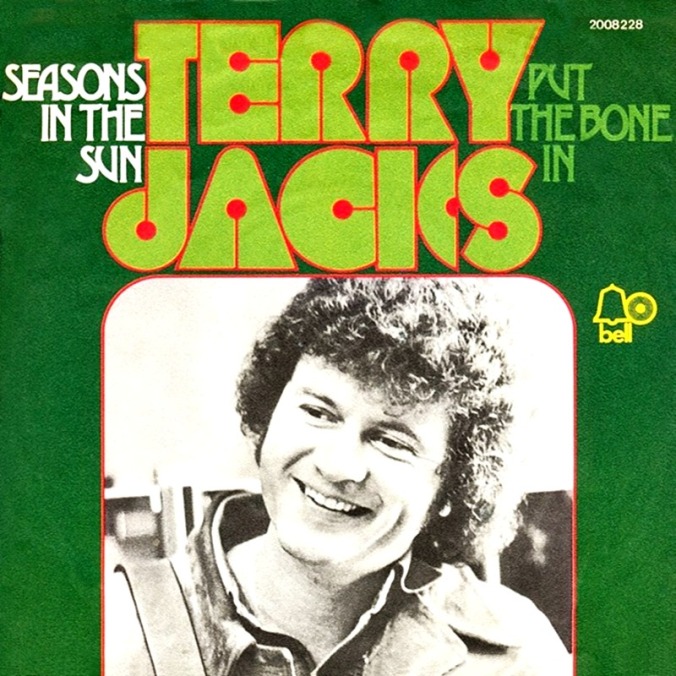 What I love most about Terry Jacks’ lone #1 hit is how singular it was when it came out. Released at the end of 1973, “Seasons in the Sun” took over the top spot on the Hot 100 chart the next year. Initially composed in the early-1960s by Belgian singer-songwriter Jacques Brel, “Seasons in the Sun” is a novel soft-rock classic. The song was originally supposed to be recorded by the Beach Boys for their Surf’s Up album in 1970, but the sessions never led to anything substantial—which led to Jacks making his own version, and reaping all of the rewards that the surf-rock purveyors just simply couldn’t muster. It’s much more mythical that Jacks got all of the glory for “Seasons of the Sun,” as he wouldn’t have another Top 40 hit in his career. But, when you make something as whimsical, charming and perfect as “Seasons of the Sun,” not replicating that success isn’t the worst thing.
What I love most about Terry Jacks’ lone #1 hit is how singular it was when it came out. Released at the end of 1973, “Seasons in the Sun” took over the top spot on the Hot 100 chart the next year. Initially composed in the early-1960s by Belgian singer-songwriter Jacques Brel, “Seasons in the Sun” is a novel soft-rock classic. The song was originally supposed to be recorded by the Beach Boys for their Surf’s Up album in 1970, but the sessions never led to anything substantial—which led to Jacks making his own version, and reaping all of the rewards that the surf-rock purveyors just simply couldn’t muster. It’s much more mythical that Jacks got all of the glory for “Seasons of the Sun,” as he wouldn’t have another Top 40 hit in his career. But, when you make something as whimsical, charming and perfect as “Seasons of the Sun,” not replicating that success isn’t the worst thing.
9. George McCrae: “Rock Your Baby”
 George McCrae, you’ve got a fan for life in me! What he does on “Rock Your Baby,” a song written by Harry Wayne Casey and produced by KC and the Sunshine Band’s Richard Finch, is nothing short of a disco miracle—and 10 million people agree, as it’s one of the best-selling singles in the history of recorded music. John Lennon once said he’d have given his “eyetooth” to have written “Rock Your Baby,” and ABBA even said that it inspired “Dancing Queen.” I mean, what a legacy to have for not just your first-ever charting solo hit, but your only #1 song in a 40-year career. Rolling Stone named “Rock Your Baby” the best song of 1974, and I think it’s a pick that holds up.
George McCrae, you’ve got a fan for life in me! What he does on “Rock Your Baby,” a song written by Harry Wayne Casey and produced by KC and the Sunshine Band’s Richard Finch, is nothing short of a disco miracle—and 10 million people agree, as it’s one of the best-selling singles in the history of recorded music. John Lennon once said he’d have given his “eyetooth” to have written “Rock Your Baby,” and ABBA even said that it inspired “Dancing Queen.” I mean, what a legacy to have for not just your first-ever charting solo hit, but your only #1 song in a 40-year career. Rolling Stone named “Rock Your Baby” the best song of 1974, and I think it’s a pick that holds up.
8. John Lennon: “Whatever Gets You Thru the Night”
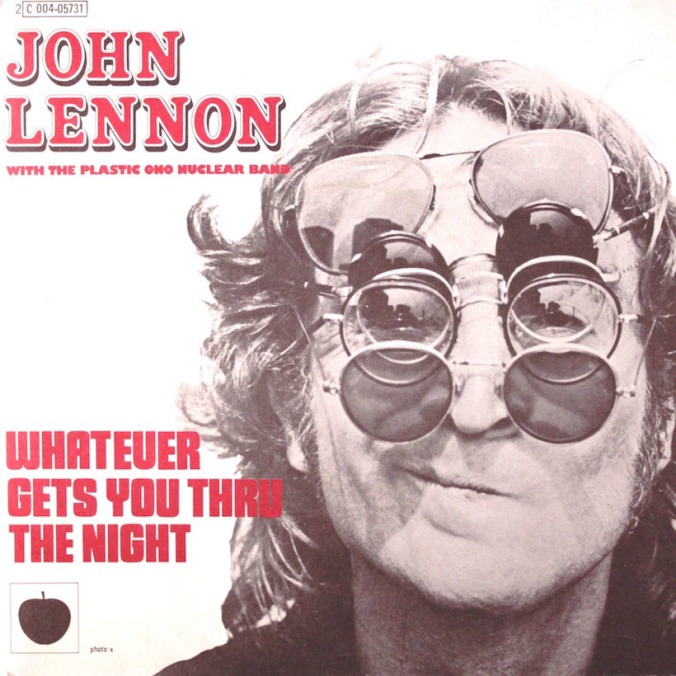 Funnily enough, John Lennon was reportedly inspired by George McCrae’s “Rock Your Baby” when making his very own #1 hit, “Whatever Gets You Thru the Night.” It’s one of the most fascinating songs Lennon ever wrote, leaning more R&B and, dare I say it, yacht rock than the run of singer-songwriter efforts he had been cycling through after the Beatles broke up. “Whatever Gets You Thru the Night” features Elton John on piano and backing vocals, which may explain why it’s such an energetic outburst contrasting with something like “Imagine” or “Mind Games.” Lennon didn’t want it to be the Walls and Bridges lead single, but Capitol Records vice president Al Coury picked it for him after scoring a massive triumph with Paul McCartney’s Band on the Run. “Whatever Gets You Thru the Night” is in the echelons of Lennon’s solo catalog, and I wish he’d done more records like it.
Funnily enough, John Lennon was reportedly inspired by George McCrae’s “Rock Your Baby” when making his very own #1 hit, “Whatever Gets You Thru the Night.” It’s one of the most fascinating songs Lennon ever wrote, leaning more R&B and, dare I say it, yacht rock than the run of singer-songwriter efforts he had been cycling through after the Beatles broke up. “Whatever Gets You Thru the Night” features Elton John on piano and backing vocals, which may explain why it’s such an energetic outburst contrasting with something like “Imagine” or “Mind Games.” Lennon didn’t want it to be the Walls and Bridges lead single, but Capitol Records vice president Al Coury picked it for him after scoring a massive triumph with Paul McCartney’s Band on the Run. “Whatever Gets You Thru the Night” is in the echelons of Lennon’s solo catalog, and I wish he’d done more records like it.
7. Andy Kim: “Rock Me Gently”
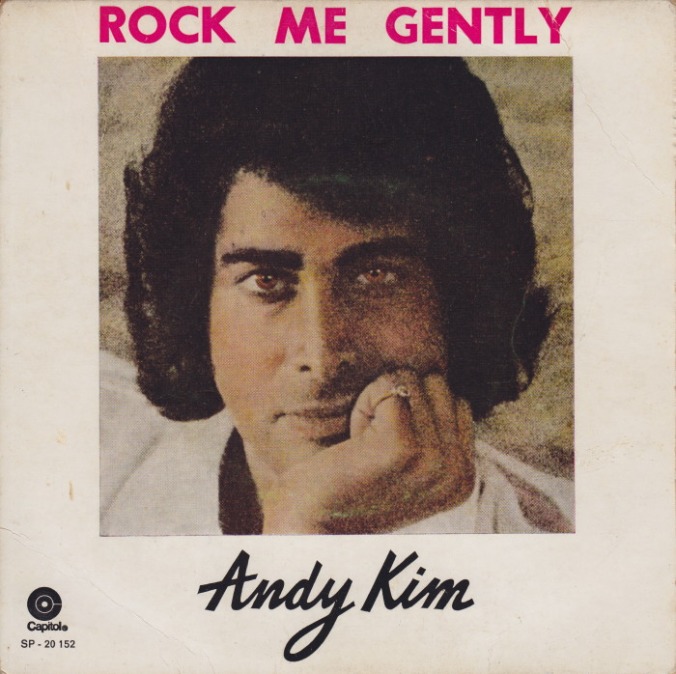 I don’t believe in guilty pleasures, so I’m not afraid to admit that I think Andy Kim’s “Rock Me Gently” is one of the catchiest pop tracks of the 1970s—and maybe ever! I’ll sing “rock me gently, rock me slowly, take it easy” from any rooftop anytime. Kim shows flashes of Neil Diamond on the song with a cast of disco rhythms surrounding him. It’d been three years since Kim had a Top 100 song, which led to him starting his own label and financing the “Rock Me Gently” sessions himself—a decision that worked pretty well, as the single landed him in the graces of Capitol Records. It took 14 weeks for the song to reach #1, but the song sold a million units and is now forever enshrined in the annals of the Hot 100—a pretty good feat for a song Kim paid for himself.
I don’t believe in guilty pleasures, so I’m not afraid to admit that I think Andy Kim’s “Rock Me Gently” is one of the catchiest pop tracks of the 1970s—and maybe ever! I’ll sing “rock me gently, rock me slowly, take it easy” from any rooftop anytime. Kim shows flashes of Neil Diamond on the song with a cast of disco rhythms surrounding him. It’d been three years since Kim had a Top 100 song, which led to him starting his own label and financing the “Rock Me Gently” sessions himself—a decision that worked pretty well, as the single landed him in the graces of Capitol Records. It took 14 weeks for the song to reach #1, but the song sold a million units and is now forever enshrined in the annals of the Hot 100—a pretty good feat for a song Kim paid for himself.
6. Elton John: “Bennie and the Jets”
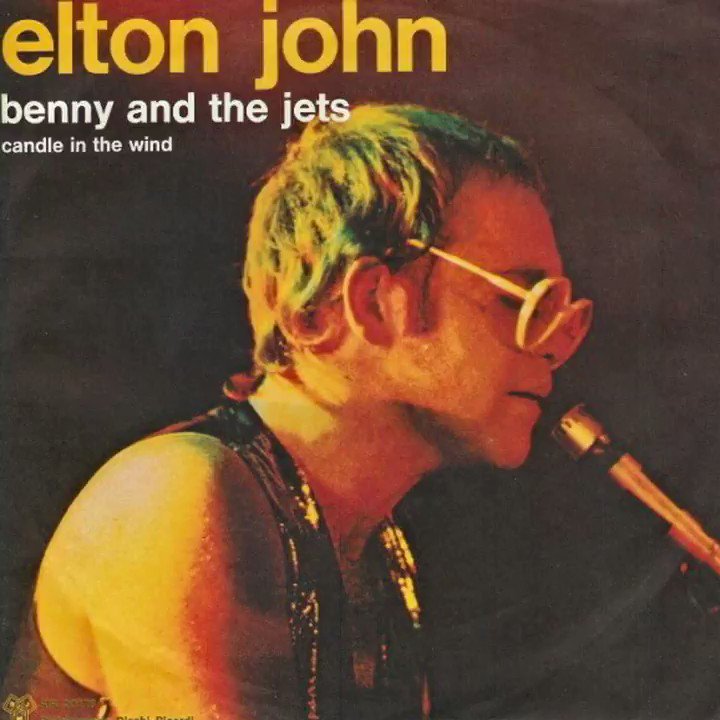 Part of what elevates the legacy of “Bennie and the Jets,” for me, is how Elton John wills it into one of the greatest live songs ever performed. Where were you when you learned that the version of the song we hear on Goodbye Yellow Brick Road wasn’t actually recorded live? It’s true, though. Producer Gus Dudgeon added the live sound effects after Elton and his band laid the track down in the studio. Taupin penned “Bennie and the Jets” as a story about a fictional, proto-science-fiction band. The bandleader was a genderqueer figure inspired by Helmut Newton’s style of photography, and Taupin’s lyrics are some of his most far-out and vivid: “We’ll kill the fatted calf tonight / So stick around / You’re gonna hear electric music / Solid walls of sound,” Elton sings. It’s unlike anything he’d ever sung before, and nothing has come close to touching it since. The track is so monumental that it was later sampled beautifully on A Tribe Called Quest’s final album. “Bennie and the Jets” could’ve been an entire album about an outfit of futuristic, weirdo punks, and I’m a little bit jaded that it never was. Elton and Taupin robbed us of the beautiful, queer, science-fiction rock opera we deserved. Sigh. We’ll always have Captain Fantastic and the Brown Dirt Cowboy.
Part of what elevates the legacy of “Bennie and the Jets,” for me, is how Elton John wills it into one of the greatest live songs ever performed. Where were you when you learned that the version of the song we hear on Goodbye Yellow Brick Road wasn’t actually recorded live? It’s true, though. Producer Gus Dudgeon added the live sound effects after Elton and his band laid the track down in the studio. Taupin penned “Bennie and the Jets” as a story about a fictional, proto-science-fiction band. The bandleader was a genderqueer figure inspired by Helmut Newton’s style of photography, and Taupin’s lyrics are some of his most far-out and vivid: “We’ll kill the fatted calf tonight / So stick around / You’re gonna hear electric music / Solid walls of sound,” Elton sings. It’s unlike anything he’d ever sung before, and nothing has come close to touching it since. The track is so monumental that it was later sampled beautifully on A Tribe Called Quest’s final album. “Bennie and the Jets” could’ve been an entire album about an outfit of futuristic, weirdo punks, and I’m a little bit jaded that it never was. Elton and Taupin robbed us of the beautiful, queer, science-fiction rock opera we deserved. Sigh. We’ll always have Captain Fantastic and the Brown Dirt Cowboy.
5. John Denver: “Annie’s Song”
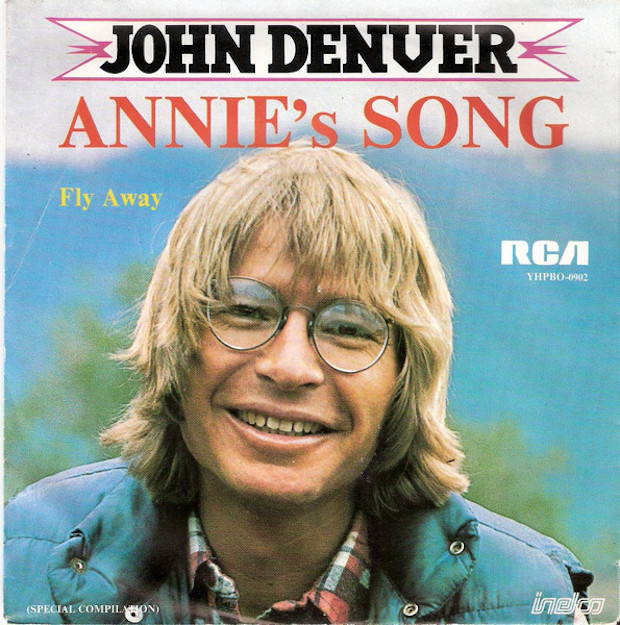 For two weeks at summer’s end, John Denver held the #1 spot with his country ballad “Annie’s Song.” It’s one of Denver’s signature songs, rubbing up with “Take Me Home, Country Roads” and “Rocky Mountain High.” The story goes that Denver wrote the song in 10-and-a-half minutes while sitting on a ski lift at the top of the Aspen Mountains in Colorado, and the orchestral arrangement certainly corroborates as much—the strings are immersive and vibrant; Denver’s voice warbles like a jet-stream crossing a bursting sky. It’s a love song, but Denver’s wife Annie thought of it as a prayer, too. I quite like that; maybe we should all whisper “come love me again” to ourselves now and again.
For two weeks at summer’s end, John Denver held the #1 spot with his country ballad “Annie’s Song.” It’s one of Denver’s signature songs, rubbing up with “Take Me Home, Country Roads” and “Rocky Mountain High.” The story goes that Denver wrote the song in 10-and-a-half minutes while sitting on a ski lift at the top of the Aspen Mountains in Colorado, and the orchestral arrangement certainly corroborates as much—the strings are immersive and vibrant; Denver’s voice warbles like a jet-stream crossing a bursting sky. It’s a love song, but Denver’s wife Annie thought of it as a prayer, too. I quite like that; maybe we should all whisper “come love me again” to ourselves now and again.
4. Barbra Streisand: “The Way We Were”
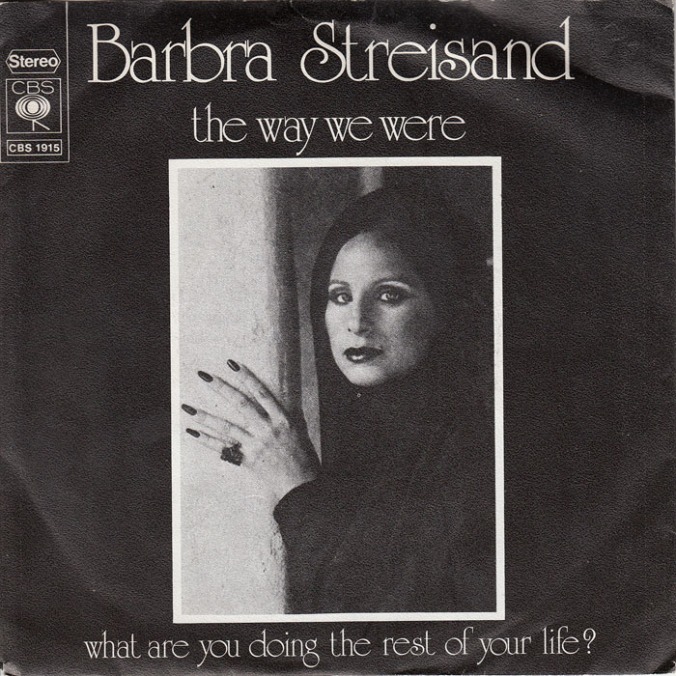 1974 was a difficult chart year to maneuver, if only because four songs spent more than two weeks at #1—Barbra Streisand’s “The Way We Were” was the first track to accomplish that feat, holding the top spot for three non-consecutive weeks between February 2nd and February 23rd. I think there’s an argument to be made that “The Way We Were” is Babs’s greatest pre-Meet the Fockers achievement, a triumph that goes head-to-head with her all-time run as Fanny Brice in Funny Girl on Broadway and in the movie adaptation. She won an Academy Award for that performance, and she won two Grammy Awards for “The Way We Were”—so it’s a toss-up. But, I’d still contend that “The Way We Were,” which was written for Sydney Pollack’s film of the same name, is the greatest recorded Streisand moment we have. A Platinum certification and a million sales in the United States later, and “The Way We Were” is, definitively, the greatest song by a Broadway star to reach #1.
1974 was a difficult chart year to maneuver, if only because four songs spent more than two weeks at #1—Barbra Streisand’s “The Way We Were” was the first track to accomplish that feat, holding the top spot for three non-consecutive weeks between February 2nd and February 23rd. I think there’s an argument to be made that “The Way We Were” is Babs’s greatest pre-Meet the Fockers achievement, a triumph that goes head-to-head with her all-time run as Fanny Brice in Funny Girl on Broadway and in the movie adaptation. She won an Academy Award for that performance, and she won two Grammy Awards for “The Way We Were”—so it’s a toss-up. But, I’d still contend that “The Way We Were,” which was written for Sydney Pollack’s film of the same name, is the greatest recorded Streisand moment we have. A Platinum certification and a million sales in the United States later, and “The Way We Were” is, definitively, the greatest song by a Broadway star to reach #1.
3. Jim Croce: “Time in a Bottle”
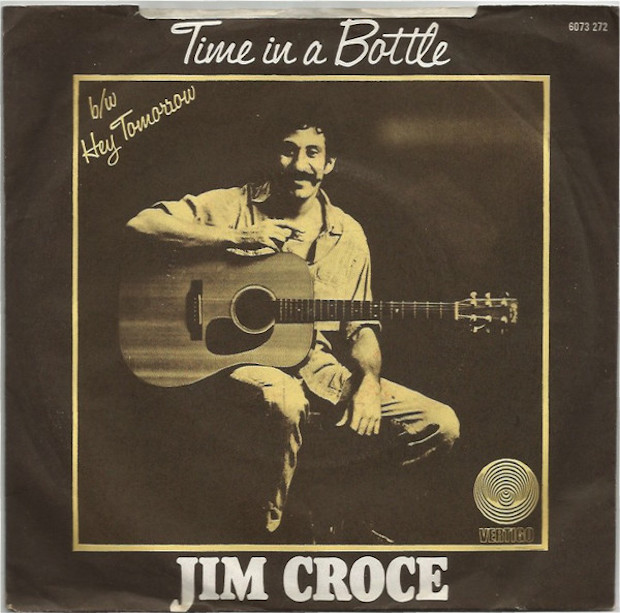 Jim Croce’s greatest ballad, “Time in a Bottle,” is one of the most undersung folk songs of the last 50 years. After Croce died in a plane crash in September 1973, the tune became not just the songwriter’s final US #1 hit, but the third posthumous Billboard chart-topper in six years (after “(Sittin’ On) The Dock of the Bay” and “Me and Bobby McGee”). With a beautiful harpsichord done by producer Tommy West, “Time in a Bottle” is a lush, career-encapsulating song with one of the sweetest choruses ever penned: “I’ve looked around enough to know that you’re the one I want to go through time with,” Croce sings. Far from the playfulness of “Bad, Bad Leroy Brown” and “You Don’t Mess Around With Jim,” “Time in a Bottle” is emblematic of Croce’s singularity in the hub of singer/songwriters that populated the pop charts in the 1970s. He was one-in-a-million, and his sudden passing prevented us from seeing him become the best folk balladeer of his era.
Jim Croce’s greatest ballad, “Time in a Bottle,” is one of the most undersung folk songs of the last 50 years. After Croce died in a plane crash in September 1973, the tune became not just the songwriter’s final US #1 hit, but the third posthumous Billboard chart-topper in six years (after “(Sittin’ On) The Dock of the Bay” and “Me and Bobby McGee”). With a beautiful harpsichord done by producer Tommy West, “Time in a Bottle” is a lush, career-encapsulating song with one of the sweetest choruses ever penned: “I’ve looked around enough to know that you’re the one I want to go through time with,” Croce sings. Far from the playfulness of “Bad, Bad Leroy Brown” and “You Don’t Mess Around With Jim,” “Time in a Bottle” is emblematic of Croce’s singularity in the hub of singer/songwriters that populated the pop charts in the 1970s. He was one-in-a-million, and his sudden passing prevented us from seeing him become the best folk balladeer of his era.
2. Stevie Wonder: “You Haven’t Done Nothin’”
 I will take any time to bring up Stevie Wonder’s album run from 1972 through 1976, which saw him put out Music of My Mind, Talking Book, Innervisions, Fulfillingness’ First Finale and Songs in the Key of Life in succession. The fact that Fulfillingness’ First Finale is likely the “worst” of the bunch is a telling detail in Wonder’s genius, given that, well, it’s a near-perfect soul record. It won Wonder a second consecutive Album of the Year Grammy and topped the Billboard albums chart. Like its predecessor, Fulfillingness’ First Finale takes a political edge—especially on the #1 hit “You Haven’t Done Nothin’,” which takes direct aim at Richard Nixon (“Why do you keep on making us hear your song? / Tellin’ us how you are changin’ right from wrong / ‘Cause if you really want to hear our views / You haven’t done nothin’”) and features backing vocals from the Jackson Five. It’s a perfect song; I still hum the “Doo da wop!” chorus in my head. Nixon resigned two days after the song came out; may Stevie’s reign burn on forever.
I will take any time to bring up Stevie Wonder’s album run from 1972 through 1976, which saw him put out Music of My Mind, Talking Book, Innervisions, Fulfillingness’ First Finale and Songs in the Key of Life in succession. The fact that Fulfillingness’ First Finale is likely the “worst” of the bunch is a telling detail in Wonder’s genius, given that, well, it’s a near-perfect soul record. It won Wonder a second consecutive Album of the Year Grammy and topped the Billboard albums chart. Like its predecessor, Fulfillingness’ First Finale takes a political edge—especially on the #1 hit “You Haven’t Done Nothin’,” which takes direct aim at Richard Nixon (“Why do you keep on making us hear your song? / Tellin’ us how you are changin’ right from wrong / ‘Cause if you really want to hear our views / You haven’t done nothin’”) and features backing vocals from the Jackson Five. It’s a perfect song; I still hum the “Doo da wop!” chorus in my head. Nixon resigned two days after the song came out; may Stevie’s reign burn on forever.
1. Paul McCartney & Wings: “Band on the Run”
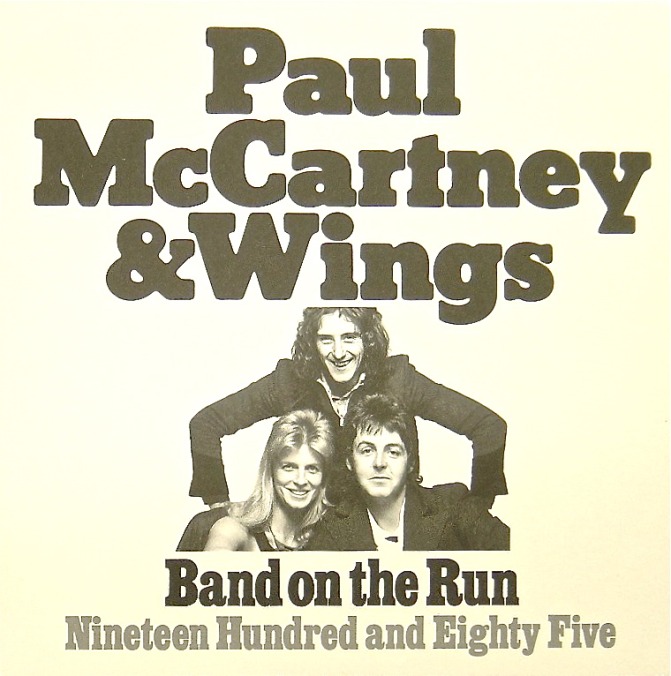 Much of “Band on the Run” was inspired by a quote George Harrison made during a Beatles business meeting, especially the line “If we ever get out of here,” and period-specific drug busts, Eagles-influenced “desperado” imagery and Paul McCartney’s own legal complications with pot possession charges helped inspire him to make a track that is, at its core, about a group of people busting out of prison. Village Voice critic Robert Christgau even went as far as labeling the song as being about “the oppression of rock musicians by cannabis-crazed bureaucrats,” and the “stuck inside these four walls” line was likely reconfigured—after the demos were stolen—to better portray the hell of the band’s ill-fated Lagos sessions when making Band on the Run. The title track employs a three-part melody through an effortless pastiche of remarkable acoustics, slide fills and multi-layered choruses. It’s a menagerie of colorful, operatic movements and finesse. Denny Laine’s lead guitar is especially notable and emphasized, as are Linda McCartney’s synthesizers. Couple both of those elements with Tony Visconti’s orchestrations, and you’ve got pop brilliance bursting at the seams. No other rock song sounds like “Band on the Run,” and no other rock song ever will.
Much of “Band on the Run” was inspired by a quote George Harrison made during a Beatles business meeting, especially the line “If we ever get out of here,” and period-specific drug busts, Eagles-influenced “desperado” imagery and Paul McCartney’s own legal complications with pot possession charges helped inspire him to make a track that is, at its core, about a group of people busting out of prison. Village Voice critic Robert Christgau even went as far as labeling the song as being about “the oppression of rock musicians by cannabis-crazed bureaucrats,” and the “stuck inside these four walls” line was likely reconfigured—after the demos were stolen—to better portray the hell of the band’s ill-fated Lagos sessions when making Band on the Run. The title track employs a three-part melody through an effortless pastiche of remarkable acoustics, slide fills and multi-layered choruses. It’s a menagerie of colorful, operatic movements and finesse. Denny Laine’s lead guitar is especially notable and emphasized, as are Linda McCartney’s synthesizers. Couple both of those elements with Tony Visconti’s orchestrations, and you’ve got pop brilliance bursting at the seams. No other rock song sounds like “Band on the Run,” and no other rock song ever will.






































